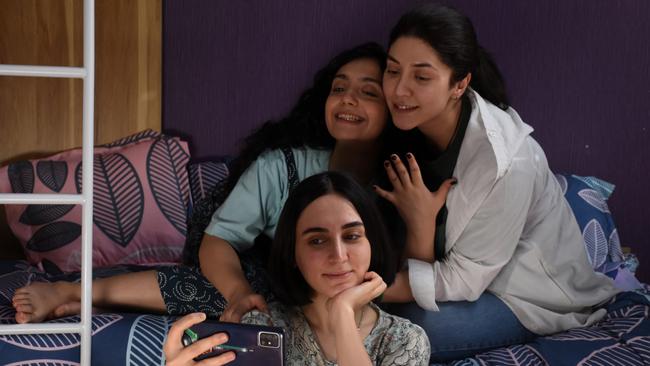Inside the repressive Iranian regime via one loving, well-off family
Mohammad Rasoulof, who has served jail time for making films that violate Iran’s censorship laws, fled his homeland ahead of the release of this film, which is well worth a watch.

When it comes to art corresponding with life, consider the authoritarian drama The Seed of the Sacred Fig, written and directed by dissident Iranian director Mohammad Rasoulof, who lives in exile in Europe.
Rasoulof, who has served jail time for making films that violate Iran’s censorship laws, fled his homeland ahead of the release of this film, his 10th, after being sentenced to eight years in prison.
He made it to Germany, where his daughter lives, as did the footage: it went into post-production with Hamburg-based British film editor Andrew Bird, who had worked with the director before.
The finished film was shown at the 2024 Cannes Film Festival, with the director present, and is Germany’s entry for Best International Film at the Academy Awards, due to be announced on March 3.
The titular fig tree is one that wraps itself around another tree, strangles it to death then stands alone. This film examines the repressive Iranian regime via one loving, well-off family.
The timing is pivotal. It’s September 2022 and the Women Life Freedom movement has launched protests in Tehran following the death in police hands of 22-year-old Masha Amini, arrested for wearing her hijab improperly.
Iman (Missagh Zareh) has just been promoted to an investigator, a step away from being a judge in the Islamic Revolutionary Court. It means a bigger salary and a larger house for his wife Najmeh (an outstanding Soheila Golestani) and their daughters Rezvan (Mahsa Rostami), who is 21 and just started at university, and Sana (Setareh Maleki), who is in high school.
Iman and Najmeh are devout, following god’s law and the regime’s implementation of it. “This is an enemy plot,’’ Iman says of claims Amini did not die of a stroke as officially reported. “The whole world is against us.”
File footage of the protests and the regime’s response, which includes images of people killed on the streets, is cut into the acted drama, which was filmed in secret.
Iman, who “has been working honourably for 20 years”, has his faith tested when he is asked to sign off on death warrants without needing to read the case file. “It is unjust. I have to obey it.” And so he does.
And Najmeh, as faithful as her husband, is aware that their daughters are young women, armed with mobile phones, who know how Iran is seen from the outside. “The girls have grown. They have opinions, questions.”
Iman is told the family must be wary of social media and be careful of who they make friends with. They need to tighten their circle, not expand it. He is also given a pistol for personal protection.
A turning point comes when the pistol goes missing. It’s a telling reminder of Anton Chekhov’s advice that there’s no point putting a gun in a story unless someone ends up firing it. If the authorities find out, Iman will be sent to jail and lose all hope of becoming a judge. He believes one of his daughters has taken the pistol and, though he loves them, he turns himself in to the regime: paranoid and harsh.
The women, including Rezvan’s friend Sadaf (Niousha Akhshi), who is shot in the face during a protest, are the compelling centre of this story. All the performances are first-rate, especially Golestani’s as Najmeh.
Iman calls in a favour and has the court’s top interrogator, a family friend, question his wife and daughters. The result is a harrowing portrait of powerlessness.
Najmeh, sitting in the interview room, complains. The interrogator looks at her coldly and tells her she is being shown more respect than anyone else who has ever sat “in that chair”.
This film is a tense, enclosed psychological drama for most of its run-time.
The final 30 minutes or so, when the family returns to Iman’s isolated hometown, become a bit of a Hollywood thriller, which this viewer thinks is a little cliched. This is not a perfect film but it is a gripping, courageous one that is well worth watching.
The Seed of the Sacred Fig (M)
Farsi language with English subtitles
168 minutes
In cinemas
★★★★




To join the conversation, please log in. Don't have an account? Register
Join the conversation, you are commenting as Logout